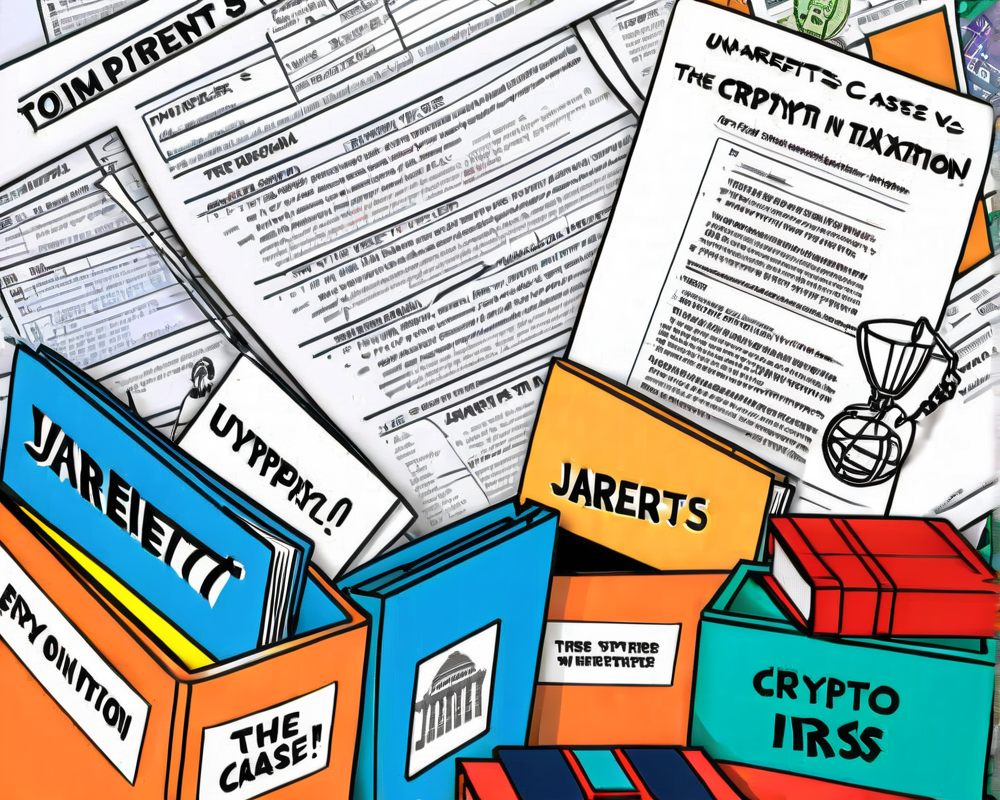Introduction to the Jarretts’ Case
In the spring of 2021, a couple from Nashville, the Jarretts, decided it was time to dive headfirst into the murky waters of cryptocurrency taxes. Their issue? A whopping tax bill on some unsold Tezos (XTZ) staking rewards they hadn’t even touched! Fast forward to February 2022: after a lengthy legal spat, they received a refund of $3,793 from the IRS. But before you pop the confetti, let’s explore what this really means for crypto holders everywhere.
A Wave of Misinformation
After the dust settled, the crypto community buzzed with excitement. A well-known crypto media outlet tweeted, “BREAKING: IRS will not tax unsold staked crypto as income,” sending waves of jubilant retweets and likes filling the timeline. However, this euphoria was short-lived. The media frenzy quickly spiraled, with mainstream articles declaring a win for all American crypto holders.
Wait, What Did That Ruling Say?
Not so fast! Seth Wilks, head of government relations at TaxBit, was quick to point out the faux pas—the IRS hadn’t actually changed anything. The settlement was less about a landmark ruling and more about the Jarretts receiving a refund. Wilks explained:
“In the eyes of the IRS, nothing has changed… This case was really more about a legal procedure than anything else.”
Clarification Needed: Taxing Staking Rewards
The underlying issue remains tangled: taxation of unclaimed staking rewards. Currently, the IRS merely queries taxpayers about their dealings in virtual currencies without providing specific guidance on how staking is treated. To bring a bit of clarity, the Jarretts expressed their hopes for the IRS to pinpoint its stance on taxation for both proof-of-stake and proof-of-work systems.
The Role of the Proof of Stake Alliance
Joining the fray is the Proof of Stake Alliance (POSA). Alison Smith Mangiero, a key figure in the organization, emphasized the case’s significance, claiming it might be the first legal opinion on taxing crypto staking rewards. She noted,
“…this is an argument backed by over 100 years of tax law, and it’s important for people to understand this is a viable position.”
With expert backing, the Jarretts’ legal team is determined to seek clarity once and for all.
What’s Next for Crypto Taxation?
Even if the case continues, one must contemplate the IRS’s next steps. Wilks mentioned that any sort of progression requires the IRS to establish clear guidance on staking definitions. Meanwhile, the POSA is tirelessly working to educate Congress on how staking rewards should be classified.
Sticking Together for Clarity
As we stand on the verge of potential policy changes, one thing is clear: clarity is still paramount. Wilks suggests that if the IRS offers solid guidance on mining, it could inevitably shape future regulations on staking. Until that clarity arrives, crypto holders would do well to keep their ducks in a row and stay informed.




